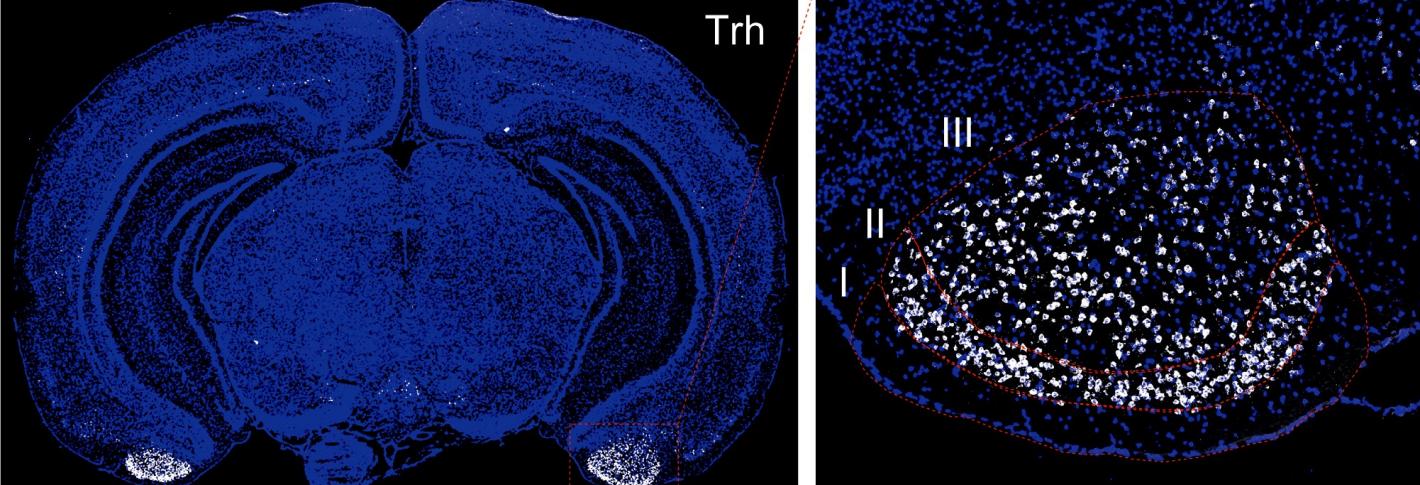A behavior may be instinctual, but it isn’t always a good idea. For instance, mating should be avoided if it could lead to illness. In a 2021 study, the Picower Institute lab of Gloria Choi discovered a circuit in the brains of male mice that allow them to override their mating instinct when they detect the odor of illness in their prospective mate.
The study in Nature showed that the smell wafting into a male mouse’s nose stimulates neurons in its vomeronasal organ to send an electrical signal through a nerve to the brain’s olfactory bulb. Cells there, Choi’s team discovered, relay the signal on to neurons in a region called the cortical amygdala that govern the mating instinct. Finally, completing the health-preserving circuit that will inhibit the mating instinct, those neurons pass on the message to brethren in the neighboring medial amygdalar nucleus.
Above: A mouse brain cross-section shows expression of thyrotrophin releasing hormone (white) in the amygdala.
In addition to tracing the circuit, the researchers demonstrated that by artificially stimulating cortical amygdala neurons they could prevent a mouse from mating with a healthy partner and by artificially silencing those same cells they could make a mouse mate with an ill-smelling one. They also found that the behavioral change of inhibiting mating could not occur without the cortical amygdala neurons also sending a chemical, thyrotrophin releasing hormone (TRH), to the medial amygdalar nucleus neurons.
Essentially, the team found a circuit that enforces social distancing. The study therefore provided a vivid example of how innate circuitry can allow the brain to integrate sensory context to guide social behavior.


